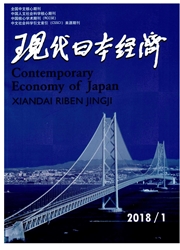

 中文摘要:
中文摘要:
日本微电子产业面临的是结构性问题,而非周期性问题。日本微电子产业经历了从兴到衰的变迁历程,从创新范式的演化视角解释其变迁的原因可归结为三方面:一是日本企业的创新策略注重对产品高附加值和品质差异化的追求,没有顺应创新速度加快、难度加大等行业创新趋势;二是日本企业的创新优势集中在制造流程和定制品的生产上,而目前业内广泛采纳的分工模式注重设计环节,适合专用标准品的生产,这种错配使其创新优势受到削弱;三是日本的创新体系以产官学联合为主,不具备创新生态系统的自调节功能,缺乏应对市场需求变化的灵活性。结合日本的经验和教训,本文认为构建以市场为导向的跨区域的创新创业生态系统,有助于提高高科技领域创新效率和成功概率。
 英文摘要:
英文摘要:
It has been showed that the problems of microelectronic industry in Japan are structural in na- ture, and not cyclical. According with its reduction in market share and the erosion of competitive advan- tage, the reasons of its transition from prosperity to decline could be summarized from the perspective of the evolution of innovation paradigm as three factors. Firstly, the innovation strategies of Japanese compa- nies focusing on the high value - added and differentiated products, could not follow the innovation trends such as accelerated innovation, increased difficulty of innovation etc. Secondly, the advantages of Japa- nese companies in innovation, which emphasize particularly on the production process and ASCP, might be weakened for mismatch the widely adopted specialized division models, while fitting for the design process and ASSP. Thirdly, Japan's innovation system characterized by Industry - Government - Acade- my Cooperation, do not have the same self- regulation function as the innovation ecosystem, and thus led to the lack of the flexibility in responding to market needs. From the experiences of Japan, it is concluded that in order to improve the innovation efficiency and the probability of successful innovation in High - Tech field, a market - oriented innovation and entrepreneurial ecosystem with trans - regional characteris- tics should be formed, where creative organization interacts with each other in the same structure as that of the specialized division models in microelectronic industry.
 同期刊论文项目
同期刊论文项目
 同项目期刊论文
同项目期刊论文
 期刊信息
期刊信息
